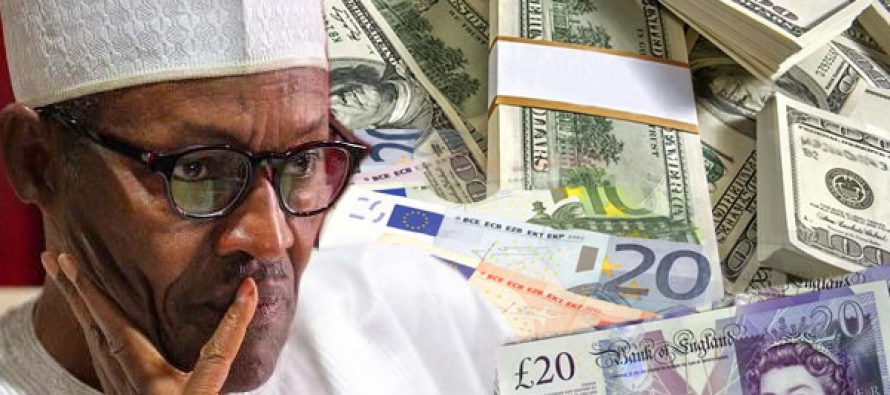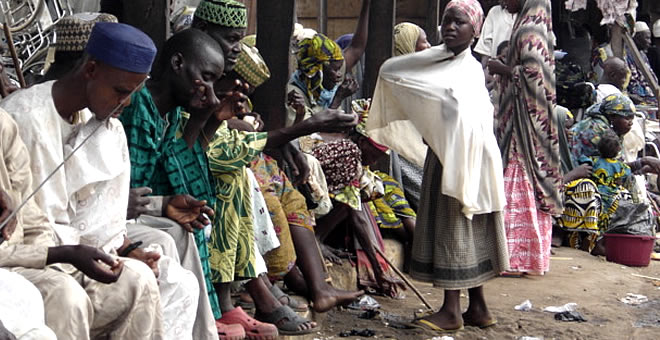Business
Nigerians, businesses count costs over worsening economic crisis

Adebayo Obajemu
For most Nigerians, and businesses, especially, small Scale Enterprises, SMEs, times could not be harder, pulverized on all sides by excruciating economic meltdown, rising inflation, which hit 22.79 percent in June from the previous 22.41 percent in May, according the National Bureau of Statistics.
Rising food prices and insecurity top the list of worries troubling Nigerians. A security report done by Nigeria Mourn, a violent incident tracking organisation in Nigeria, has shown that no less than 1,151 civilians and 79 security operatives were killed in the first quarter (Q1) of 2023. It also reported that over 658 abductions were recorded across the country within the period under review.
According to the report, attacks and activities of Boko Haram and Islamic State of West Africa Province (ISWAP) constituted 22.11%, which amounted to, at least,q 272 deaths while political-related killings, mostly due to the recent 2023 general elections, claimed at least 7.72%, which stood at no fewer than 95 deaths.
The report said: “In what has been an unfortunate trend in our data collated in the first quarter of 2023, banditry remains the largest cause of violent deaths across the country with 29.27% (360 deaths) while an existing threat is the rise in extra-judicial killings and herdsmen related killings, which constitute about 10.08% and 13.65% respectively with (at least 124 and 168 deaths each).
“Secessionists’ violent campaign mostly in the Southeast part of the country contributed 6.75% representing (at least 83 deaths) while cult clashes took 4.96% (at least 61 deaths).
“Isolated attacks, mob attacks, armed robbery and communal clashes took the remaining 5.45% combined (at least 67 deaths).”
Yet, insecurity is often said to be one of the major reasons for food scarcity as farmers can no longer perform farming activities.
But when Tinubu administration, whose legitimacy is a subject of litigations arising from electoral malpractices, removed fuel subsidy without any cushions, which jerked fuel price from N185 to from between N480 to N560 depending on the part of the country one was buying from, Most thought it was Armageddon. This led immediately to spiral of rising prices of basic commodities, which further added to the burden of Nigerians.
Last Wednesday, the Nigerian National Petroleum Limited further jerked up the petrol price to N 617 compounding the woes of average Nigerians. In Nigeria, fuel costs have tripled over the last month and are expected to rise even further, a major hit to millions of people, who are struggling to get by already .
Anger, trepidation and a sense of betrayal enveloped the air, when the announcement of a further increase was made. The NNPC Limited rationalized the development on the interplay of market forces. Prof. Adeagbo Moritiwon, a political scientist said, “Tinubu has brought back Structural Adjustment Program without a human face, saying the measures will further impoverish Nigerians and may give birth to crimes as the vulnerables may resort to self help in form of crime. He should have come up with cushions in dialogue with the labour, the civil society and manufacturer association.”
Last week angst was at its highest as condemnation after condemnation. poured in from across the country, with the citizens describing the decision as insensitive.
The Nigeria Union of Journalists (NUJ) last Tuesday said the sudden decision to increase petrol pump prices was an overkill.
The union implored the Tinubu administration to reverse the decision immediately while adequate measures are put in place to lessen the effects on ordinary Nigerians. The NUJ National Secretary, Shuaibu Leman, disclosed this in a statement on Tuesday.
The NUJ said it is alarmed at the just-announced increase in the pump price of Premium Motor Spirit (PMS) to N617 per litre in Abuja and N568 in Lagos.
“This development has already triggered astronomical increases in transportation costs, with prices of food items soaring almost beyond the reach of many citizens, even as users of generators to power their homes are already groaning uncontrollably under the present situation,” the union said.
“While we applaud the decision to remove the costly subsidies on fuel, however, we had cautioned against a hasty implementation of the policy without putting mitigating measures in place to cushion the excruciating effects.”
The union said that it is saddened that most people can hardly commute to work or other places of business without too much stress because the sudden surge in petrol prices has made it so.
“We believe that this sudden decision is an overkill, and we urge that the situation should be reversed immediately while adequate measures are considered and put in place to lessen the effects on ordinary Nigerians,” it said.
President Bola Tinubu announced the removal of fuel subsidies in his inaugural address on 29 May.
Following the announcement, the Nigerian National Petroleum Company Limited (NNPCL) directed its outlets nationwide to sell fuel between N480 and N510 per litre, an over 200 per cent increase from the initial price below N200.
The hike immediately triggered an increase in transportation fares and prices of goods and services. Even though the subsidy regime covered the month of June, oil marketers swiftly adjusted their metres to N500 and above per litre of petrol.
Meanwhile, Business Hallmark’s investigations showed that there is no uniform price of the commodity across the country. In the nation’s capital, Abuja, it sells for N617 and above, especially NNPC filling stations. However, that cannot be said of other cities.
In Ogun State for instance, while many filling stations are not dispensing, those who opened for business are selling for N650 per litre.
An angry taxi driver at Sango Ota, who identified himself as Tiamiyu told Business Hallmark that, “it is not good, Nigerians are just being made to suffer everyday. Our children are in school, we have not paid their tuition, which I heard has also increased, rent has not been completed, even to feed ourselves is a huge challenge.
“I swear to God Almighty, I have never eaten anything today. I am a cab driver, and here on the queue. The car owner is waiting for daily returns.”
Both the NNPCL and the Nigerian Midstream and Downstream Petroleum Regulatory Authority, NMDPRA, are in unanimity in their stand on the increment. They stated that the government was no longer in a position to fix the market price of the commodity.
NNPCL’s Group Chief Executive Officer, Malam Mele Kyari, after a private meeting with the Vice President, Kashim Shettima, at the Presidential Villa, on Tuesday, in Abuja, said that the increase in the price of PMS has nothing to do with supply issues but dictated by market forces.
Joe Ajaero, the President of NLC, in a statement, condemned the new development, and rejected the proposed N8000 palliatives. He said the proposal was like robbing the poor to pay the rich.
Ajaero added that he was no longer interested in the federal government’s Committee to cushion the effect of fuel subsidy removal impact on Nigerians because it failed to set up a National Steering Committee.
“There is no other way to explain the proposal to pay a misery sum of N8,000 to each of the mysterious poorest 12 million households for six months, which amounts to N48,000 and pays just 469 National Legislators N70 billion or about N149m each, while the Judiciary that has about 72 Appeal Court Judges, 33 National Industrial Court Judges, 75 Federal High Court Judges and 21 Supreme Court Judges and a total of about 201 Judges receives a total of N35 billion or N174m each.
“If these other two arms are projected to receive this, what members of the Executive Council will receive is better left to the imagination of Nigerians; perhaps, the balance of N150 billion will go to them.
“NLC would not want to continue to be part of the usual charade of Committees with never implemented outcomes. We would not want to waste the time of Nigerians, especially workers on Committees that have already been programmed to fail and thus ignored”, the statement partly reads.










